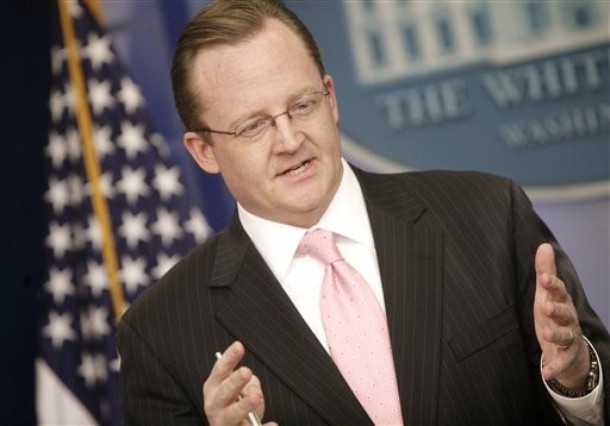
President Obama has once again set off a round of charges that he’s snubbing European leaders, this time with the announcement he’ll skip May’s EU-US summit.
Deborah Seward for AP:
French President Nicolas Sarkozy and German Chancellor Angela Merkel brushed off President Barack Obama’s decision not to attend an annual summit with European leaders while stressing Thursday the importance of Russia as a European partner.
A U.S. State Department deputy briefing reporters made the announcement Monday that Obama would miss the EU-U.S. summit in May that will take place in Spain, which now holds the rotating EU presidency. Since then, European media have been awash with commentary wondering what the White House’s snub means for Europe as it struggles to find a united voice in foreign affairs following the creation of the new posts of EU president and foreign minister.
"With the United States, I don’t understand the debate," Sarkozy told a news conference with Merkel after a joint meeting of the entire French and German governments in Paris. "Where is the drama? Is that our only problem in the world today?" he continued.
Spanish Prime Minister Jose Luis Rodriguez Zapatero also expressed understanding Thursday for Obama’s decision, telling a meeting of the Atlantic Council in Washington that European leaders "do not think he has lost interest in the EU."
Obama already had miffed Merkel by skipping the ceremonies marking the 20th anniversary of the fall of the Berlin Wall in November, and she was more taciturn. She said that along with Sarkozy and other EU leaders, she would discuss the issue at an informal summit in Brussels next week.
Sarkozy indicated that Obama might choose to meet with European leaders in the fall when the U.S. president would be expected to attend the annual NATO leaders summit which this year is in Portugal — a combined solution the French leader said was a "rather good idea."
"If the summit is in November instead of May, it truly doesn’t matter. My feeling is that there are too many summits. There are too many trips. There is too much time lost," Sarkozy said.
Practically speaking, Sarkozy is no doubt correct. The real work of diplomacy is done by professional staff rungs below the head of state level. The net effect on that score of Obama’s presence or lack thereof will be negligible.
But the optics are not good.
This president has gone out of his way to signal that Europe is less important to his administration than it was to its predecessor. At the same time, he’s gone the extra mile in showing that the Pacific is of great importance to him.
Objectively, there’s little doubt that Asia — and particularly China and the Subcontinent — are becoming greater global powers that merit increased attention. But there’s no need to poke a finger in the eye of our traditional allies, either. Transatlantic cooperation remains vital on a whole host of issues, ranging from Afghanistan to the financial crisis to climate change.
So why not attend these occasional summits that the leaders of all the major European powers seem to have time for? It’s not like it’s a long flight — and the man does have his own airplane.
James Joyner is managing editor of the Atlantic Council. AP Photo.
Image: robert-gibbs-press-conference.jpg
